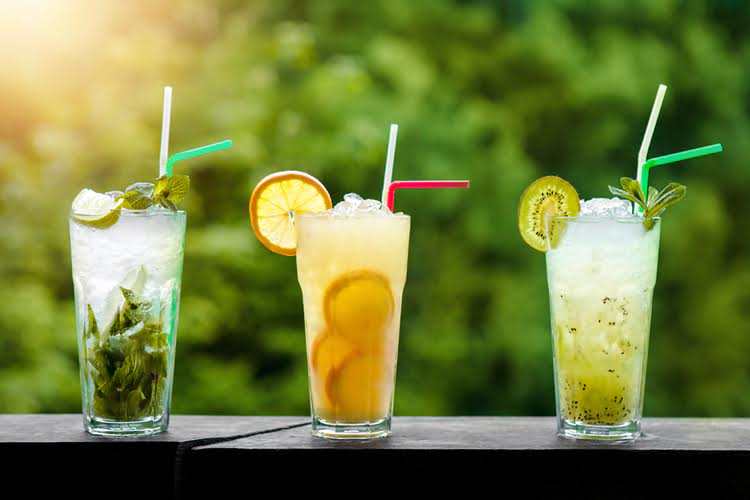They stress the importance of self-care and understanding, enabling readers to handle these Sobriety challenging dynamics with more confidence and resilience. For anyone wrestling with self-doubt or harsh self-criticism, Radical Acceptance is like a comforting friend on the journey to healing and self-love. An important book for those wishing to adjust their personal relationship and to embrace life with kindness and dignity. Brach’s wisdom and kindness shine through every page, offering hope for anyone on their path to self-acceptance.
Good Drinks: For Those Who Aren’t Drinking, for Whatever Reason by Julia Bainbridge

With personal stories, scientific insights, and expert guidance, this edition provides a best alcohol recovery books comprehensive and compassionate exploration of addictive behaviors. Have you noticed that our world is increasingly obsessed with drinking? Work events, brunch, baby showers, book club, hair salons—the list of where to find booze is endless. Holly Whitaker, in her own path to recovery, discovered the insidious ways the alcohol industry targets women and the patriarchal methods of recovery. Ever the feminist, she found that women and other oppressed people don’t need the tenets of Alcoholics Anonymous, but a deeper understanding of their own identities. Quit Like a Woman is her informative and relatable guidebook to breaking an addiction to alcohol.
Find a rehab center near you
- Texts such as this one do not deny the utility of prescription medications for patients who need them.
- Terry achieved long-term sobriety at one time, and she helped many women.
- Genetic factors, environmental influences, cultural norms, belief systems, and a lack of alternative coping mechanisms can all factor into the risk of developing alcoholism.
20) A Happier Hour by Rebecca WellerAt 39 years of age – and a health coach, no less – Weller knew better than to drink several bottles of wine each week. Her increasingly dysfunctional relationship with alcohol had to stop, but after decades of social drinking, she was terrified of what that might mean. She takes us through her journey of recovery in this moving, inspiring story about giving up something you think you love to live the life you truly want. Ann Dowsett Johnston brilliantly weaves her own story of recovery with in-depth research on the alarming rise of risky drinking among women. The marketing strategies employed to sell booze to women are as alarming https://www.kaarst-schnarcht-nicht.de/why-does-alcohol-cause-easy-bruising-can-you-stop-7/ as the skyrocketing number of women who qualify as having alcohol use disorders. Ann’s book is such a unique and insightful combination of personal experience and scientific research.
Bounce Back From Relapse To Sobriety
In fact, I just returned from a trip overseas in which the bartender and I bonded over free non-alcoholic cocktails and had a delightful hour-long conversation about kratom. If your goal is to become unshakeable in your daily life, this book is a great place to start. It contains millennia of accumulated Eastern wisdom that has either been forgotten or repackaged as stunted cliches. Since mainstream recovery culture preaches an implicit ethic of self-denial, I found that it was important to find fresh sources for resurrecting my own positive sense of self. This is a fantastic read whenever you feel unsure of what to focus on or simply overwhelmed by negativity. With intensity and repetition, I’ve also turned certain yoga poses into automatic initiators of a rush of feel-good chemicals.
- Julia Ross is a pioneer of nutrient therapy, and this book explains how basic nutrients can be used with great success to cure a number of mental health issues.
- The following are a smattering of the books about alcoholism I’ve found meaningful.
- This book provides an eye-opening perspective on and insight into how racism and white supremacy can lead to intergenerational trauma.
- This is a must read for anyone passionate about exploring their relationship with alcohol and the role a patriarchal system has played in rising rates of unhealthy substance use in America.

Anhedonia, the inability to feel pleasure or genuine passion, is a real problem for people who quit drinking. Reinventing yourself as a student of human nature is one of the finest ways to rekindle your interest in the world around you. It also rests on the premise that an unhealthy attachment to drinking is endemic to a person’s identity, and therefore impossible to get over.
With years of research and clinical practice behind him, van der Kolk digs into how trauma can change brain activity, body reactions, and even our emotional experiences. His findings show that trauma isn’t just a mental struggle but something that physically resides in us, impacting every part of our well-being. Published by Alcoholics Anonymous, this work does not offer advice on how to get sober; instead, it offers information on how to maintain sobriety on a day-to-day basis.
